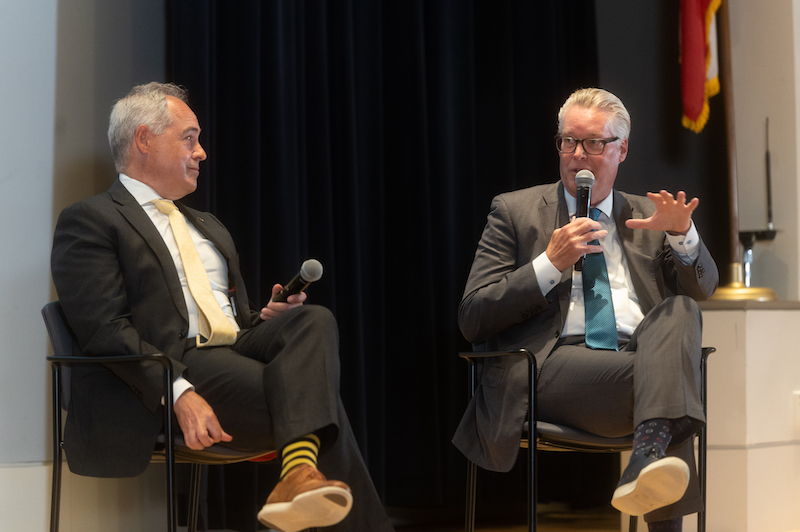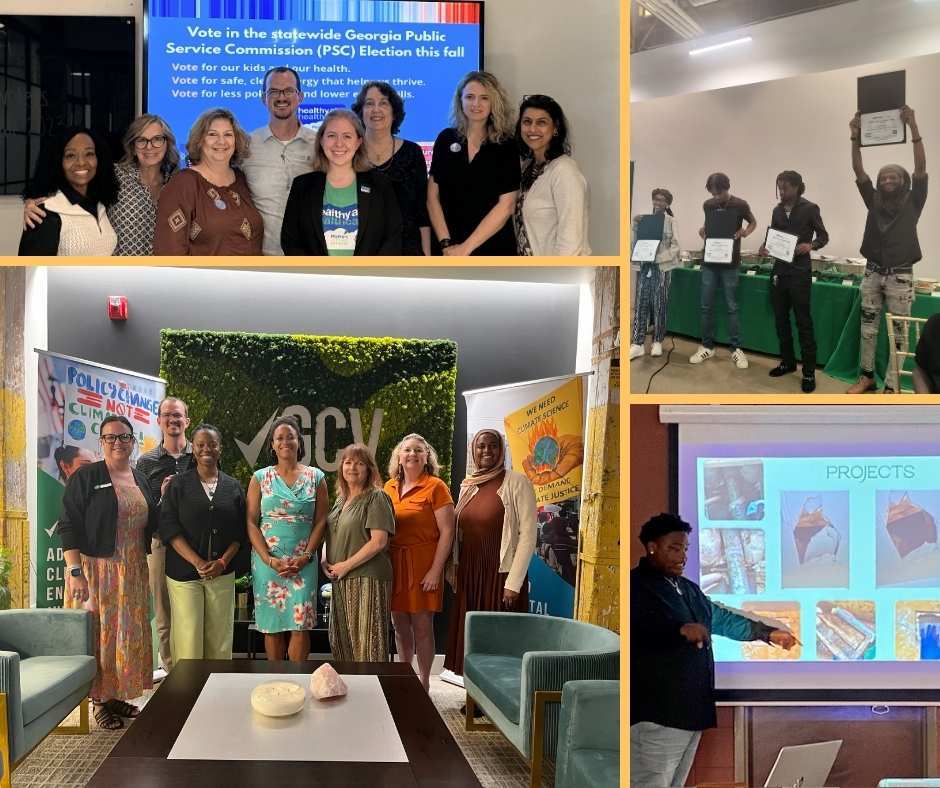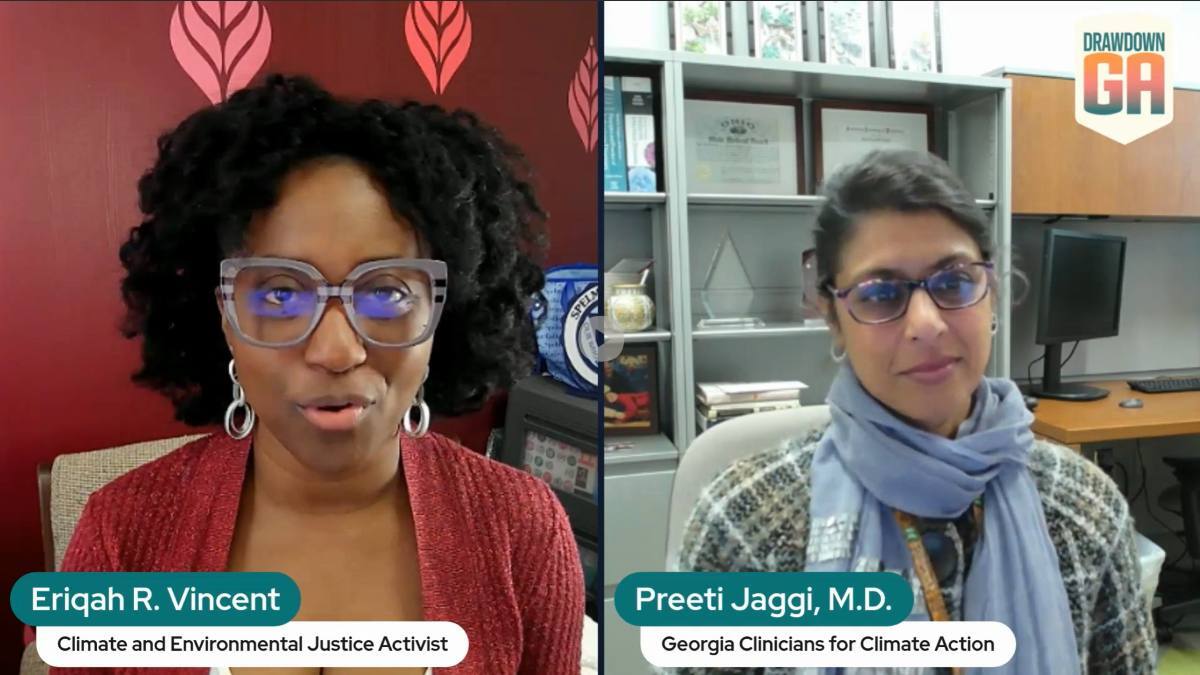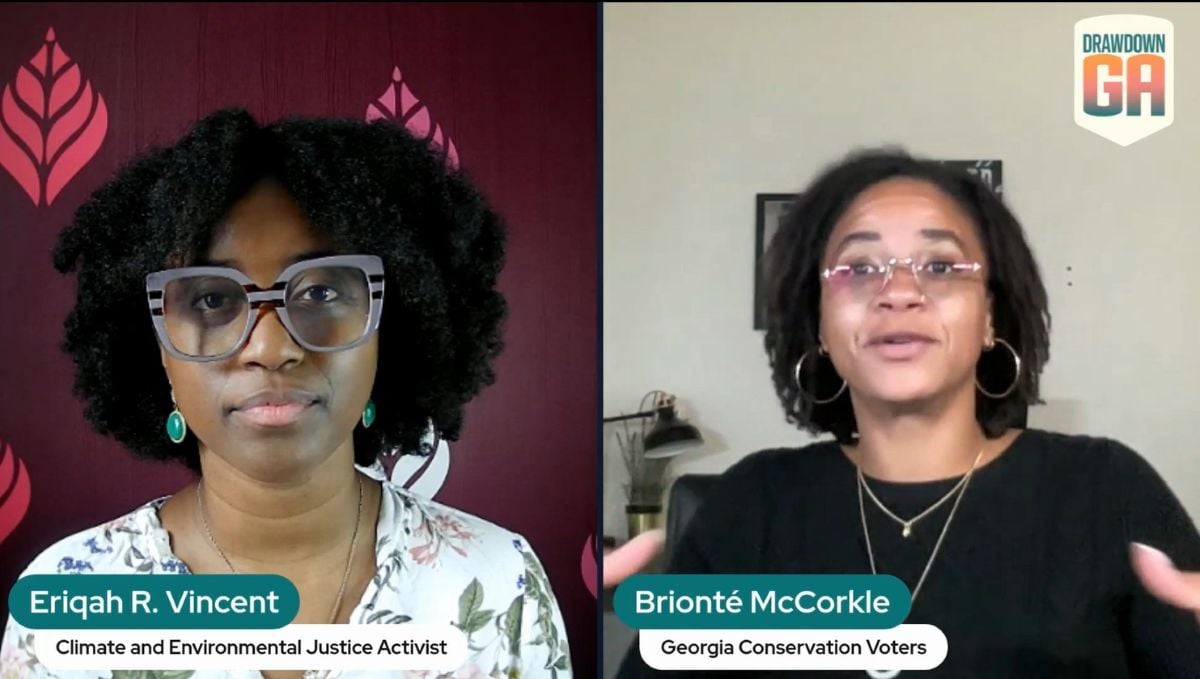What actions are Georgia businesses—both small and large—taking to address climate change and scale climate solutions in our state?
A recent event hosted by the Atlanta Press Club and the Drawdown Georgia Business Compact to foster a civic dialogue about these topics was moderated by Maria Saporta of the Saporta Report and Nick Valencia from CNN, in conversation with Georgia Tech President Ángel Cabrera and Delta Airlines CEO Ed Bastian.
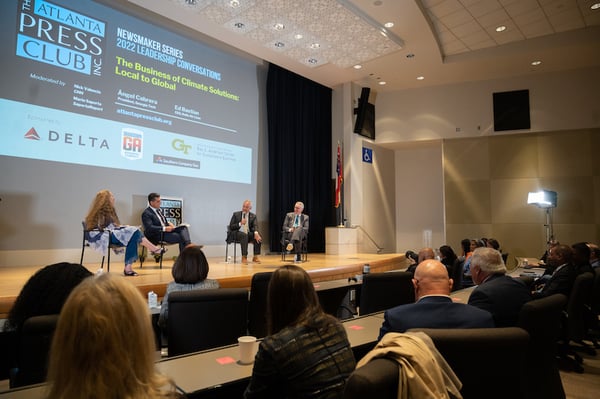
The dialogue explores the myriad ways that both small and large Georgia businesses are making positive changes to reduce pollution and waste. The two speakers also gave examples of companies taking individual and collective actions to support Georgia's statewide goal of net zero emissions.
Covid Response as a Case Study for Climate Change Response
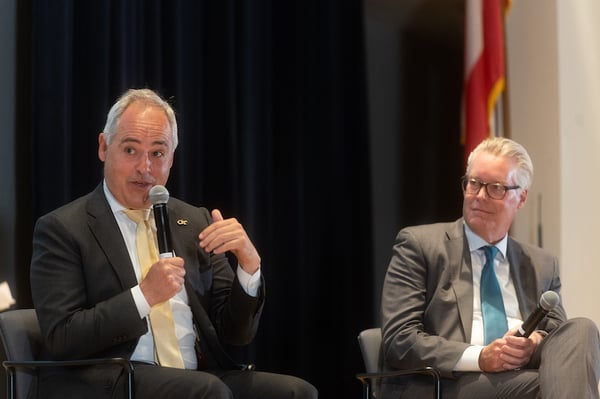 Georgia Tech President Ángel Cabrera (left) and Delta Airlines CEO Ed Bastian (right).
Georgia Tech President Ángel Cabrera (left) and Delta Airlines CEO Ed Bastian (right).
Both Cabrera and Bastian believed that the pandemic response offered a timely—and hopeful—lesson on how we can respond quickly to climate, both locally and around the world.
Cabrera reflected back on the very beginning of Covid-19 when people were dying of a disease we didn’t at all understand, when we were disinfecting groceries and leaving packages on our porch for 24 hours before bringing them inside because we didn’t understand how the disease was transmitted.
But, he noted, we developed solutions to the disease through a global collaboration: “Within less than a year, we had figured out what caused it. We had figured out ways to prevent it. We had figured out ways to manufacture a vaccine and distribute it around the world. And all that was imperfect and noisy and drove us crazy at times. But we—the global we—we got it done.”
Above all, Cabrera expressed his hope that one of the lessons we'll come away with from the pandemic is an increased confidence in and belief in science and technology.
Bastian also described the past two years as “some of the most defining years of our generation,” noting that well-being is something we’ve seen we can no longer take for granted in terms of our own health and in terms of business success. As Covid-19 drove home the importance of resiliency, Bastian also said, “We can’t walk out of this time frame without a renewed commitment to healing the planet and creating opportunity for all of our children in the future.”
Delta’s Goal to Become the First Carbon-Neutral Airline
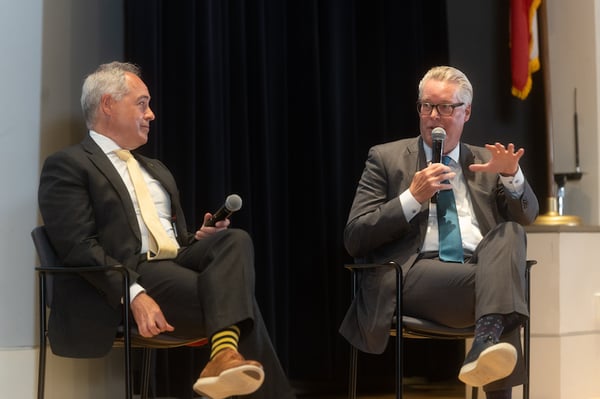
Two years ago, just before Covid hit, Delta announced a very ambitious $1 billion plan to become the first carbon-neutral airline in the world. At the time, Bastian noted, the only real vehicle the airline had available to achieve that goal was by investing in carbon offsets.
Delta is currently investing in reforestation projects and clean water projects around the world, but the company is also seeking new technologies and solutions to invest in that will reduce, rather than simply offset, their emissions.
To that end, Delta recently hired Pamela Fletcher as the only chief sustainability officer in the industry. Fletcher had previously served as the vice president for global innovation at GM, where she had led the company’s transition to electric vehicles.
“I need you to do for us in the sky what you did on the ground for GM,” Bastian explained. “The manufacturers are now designing a product that consumers want to invest in at affordable price points with government support… we need to have that same race. And it's probably going to take 20 years to get there. But we're on the journey, and that's why I reached out to Pam and hired her.”
The Role of Government in Fueling Innovation on Climate Solutions to Reach Net Zero Emissions
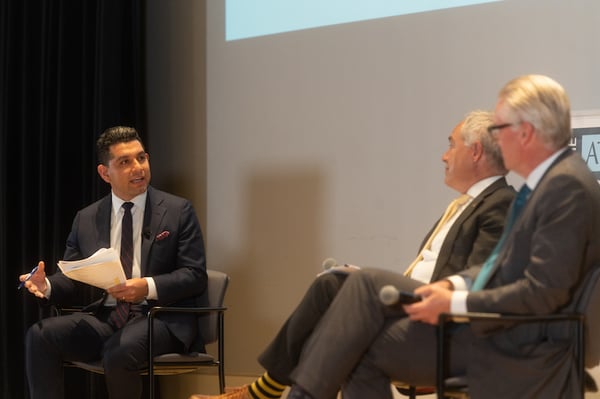 Nick Valencia from CNN, Georgia Tech President Ángel Cabrera and Delta Airlines CEO Ed Bastian.
Nick Valencia from CNN, Georgia Tech President Ángel Cabrera and Delta Airlines CEO Ed Bastian.
Ed Bastian discussed the importance of sustainable aviation fuel in decarbonizing the airline industry. Currently, 98% of Delta’s carbon footprint comes from fossil fuels, especially jet fuel. Very little sustainable jet fuel is available on the market, and it costs three to five times more than conventional jet fuel.
The challenge, Bastian argued, is finding the necessary capital to invest in the technologies that are needed to improve the sustainability of air travel. He explained, “The energy producers, which I don't blame them, they're not going to invest the billions, tens of billions of dollars required unless they know they're going to have somebody on their side. Somebody's got to close that gap.”
Cabrera agreed, noting that “Government is... perhaps the only vehicle we have to create the right policy setting in which individuals, businesses, researchers and others can come up with solutions. The levers that the government has to enable that transformation are enormous.”
Bastian added that Delta has had talks with the Departments of Energy and Transportation and wants to see government bring energy producers to the table with airlines on a federal or even international level. Currently, Delta and other airlines have to compete with the tax credits on renewable diesel and other products that are used on the ground that energy producers already receive. “That's what we're competing with,” Bastian said. “They can get a better economic deal to create renewable diesel, to put in cars. They're not going to invest in my business.”
Overcoming Obstacles to Scale Climate Solutions
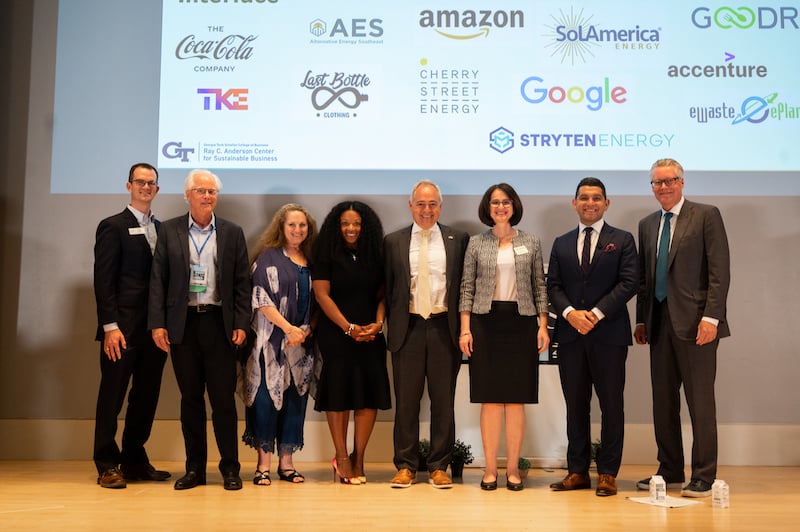
From left to right: John Lanier, the Ray C. Anderson Foundation; Ken Foskett, Atlanta Press Club; Maria Saporta, the Saporta Report; Quinnie Jenkins, Delta Airlines;
Ángel Cabrera, Georgia Tech; Dr. Beril Toktay, Georgia Tech; Nick Valencia, CNN; Ed Bastian, Delta Airlines
The panelists also dove into some of the challenges we face in Georgia and around the world in taking swift and decisive action on climate.
Cabrera noted that the chapter of the latest report from the Intergovernmental Panel on Climate Change (IPCC) that focused on North America highlighted one of the biggest barriers to climate action we face in this part of the world: political polarization. “Somehow we need to get over this,” he said. “Our nature, the atmosphere, our climate—that's where the action should be. That's where the debate should be. That's where I hope the action goes because government and policy absolutely will play a humongous role in getting us out of this.”
What is the solution? Cabrera believes it’s important to simply keep talking and keep writing about climate change. He said, “Let's disagree as vehemently about what is the best solution. Let's vote. Let's argue. Let's debate. But all the time we spend questioning the evidence is wasted precious time.”


